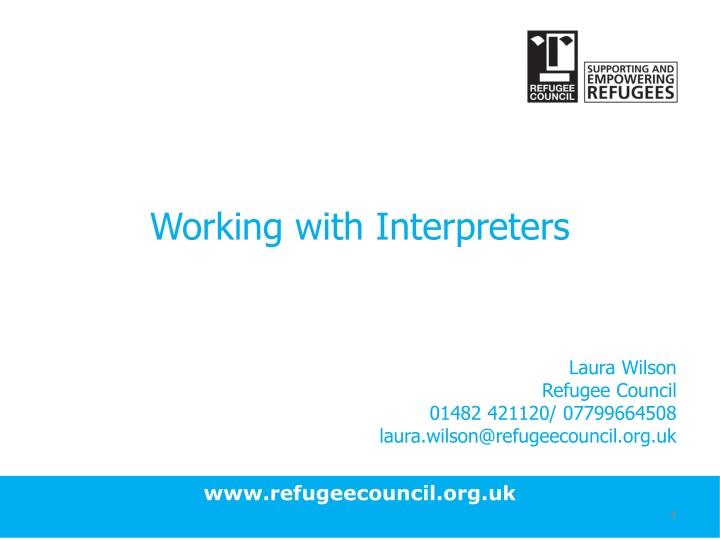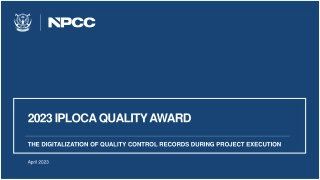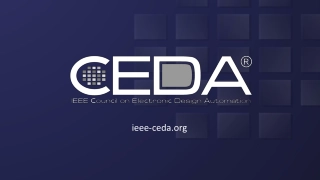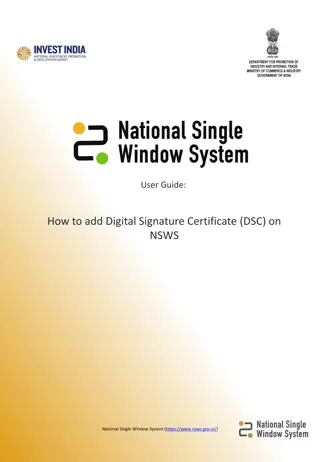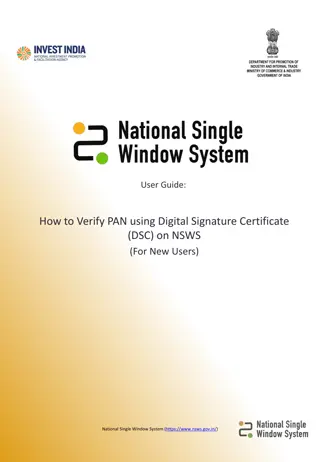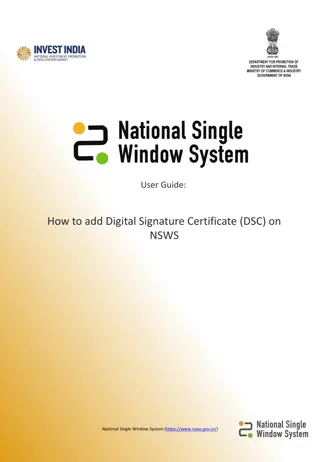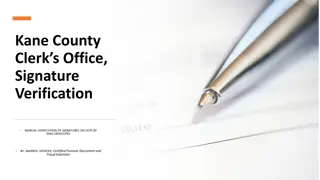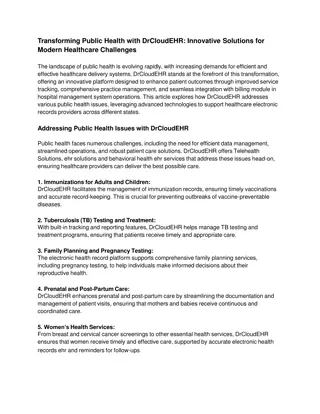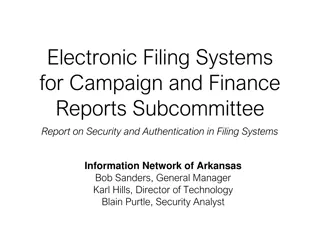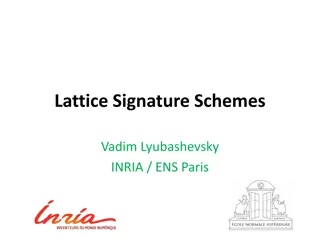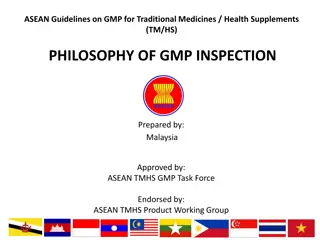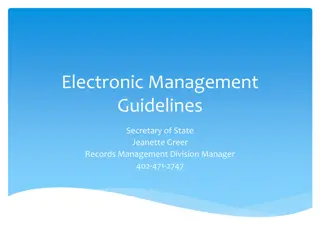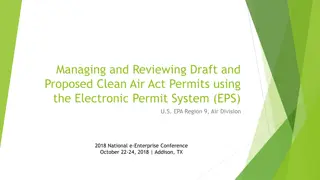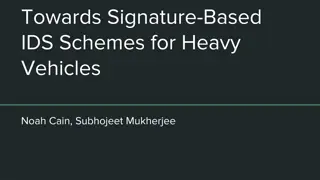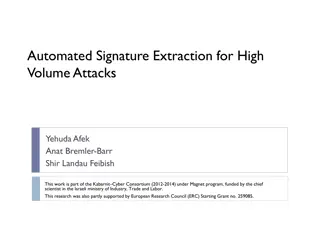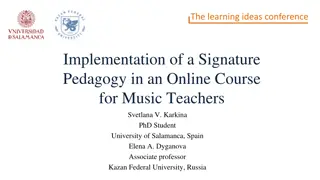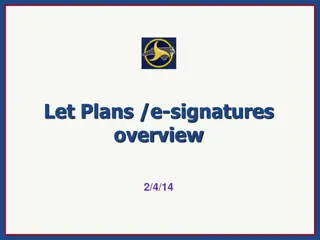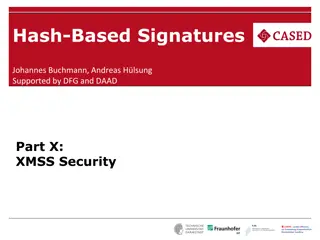Implementing Electronic Signature Solutions
This content discusses the methodology, framework, and approach for implementing electronic signature solutions, focusing on business analysis, risk assessment, and the transition from wet signatures to electronic solutions. It covers key aspects such as inventorying existing wet signatures, optimizing workflows, and complying with regulations like ESRA. The importance of conducting business analysis and risk assessment in government entities is highlighted, emphasizing factors for selecting and accepting electronic signatures in transactions.
Download Presentation

Please find below an Image/Link to download the presentation.
The content on the website is provided AS IS for your information and personal use only. It may not be sold, licensed, or shared on other websites without obtaining consent from the author.If you encounter any issues during the download, it is possible that the publisher has removed the file from their server.
You are allowed to download the files provided on this website for personal or commercial use, subject to the condition that they are used lawfully. All files are the property of their respective owners.
The content on the website is provided AS IS for your information and personal use only. It may not be sold, licensed, or shared on other websites without obtaining consent from the author.
E N D
Presentation Transcript
Working with Interpreters Laura Wilson Refugee Council 01482 421120/ 07799664508 laura.wilson@refugeecouncil.org.uk www.refugeecouncil.org.uk 1
What will we cover today? o Why is this an important topic? o Who we are supporting o Interpreters o Service Providers o Service Users o Alternatives o Do and Do Not s www.refugeecouncil.org.uk 2
Why is this an Important Topic? o Victoria Climbie died on the 25th February 2000- Victoria s life could have been saved if she had had an interpreter. o Child H- Two year old child died in June 2013; dismissal of child protection concerns on the grounds of misunderstandings due to language barriers. o Child A- Two month old Lithuanian girl died in Sept 2013 of severe non-accidental head injury. o Child H- Three year old Somali boy murdered by his Father in Dec 2013. o All of these deaths could have been avoided if an appropriate interpreter had been present. www.refugeecouncil.org.uk 3
Supporting Refugees and Asylum Seekers www.refugeecouncil.org.uk 4
Good Practice: Interpreters o Impartiality o Confidentiality o Disclosure of any conflict of interests o Intervene o But it is your job as a service provider to ask the right questions, brief and de-brief the interpreter! o How are we doing as service providers www.refugeecouncil.org.uk 5
What do Interpreters say? I am not qualified to give the kind of advice I am giving No direct translation and no alternative is offered I am praised for the work I do Language is not simplified I feel like I am helping Service User often leaves confused and I feel responsible Not enough time for clarification They do their best www.refugeecouncil.org.uk 6
Service Providers o Statutory bodies have a legal obligation to: - Provide language services - Promote equal access to services - Eliminate racial discrimination. o Statutory bodies must ensure that language services are efficient and effective: - Allow enough time for interviews/ appointments - Brief and de-brief Interpreters - Work with professional, trained Interpreters www.refugeecouncil.org.uk 7
What do Service Providers say? Most do not understand Google Translate Some Languages are unavailable There is not enough time for appointments If you keep booking interpreters THEY will never learn English!!!!! Bring a friend or family member with you Pressure www.refugeecouncil.org.uk 8
Perspectives from Service Users I was told there was no interpreters and I should bring a friend. It was too personal so I tried to explain in English but couldn t understand them. I am illiterate and couldn t understand Google translate. It spoke in a different dialect. It went really well and the Interpreter helped me and explained things clearly. I waited for two hours for an interpreter to come and this was not the first time. I don t feel my time is respected Sometimes no Interpreter is booked and my husband comes in with me. The Interpreter did not speak good English and we were both confused! www.refugeecouncil.org.uk 9
Requests from Service Users o Give us enough time to explain (we know you don t have time!) o Explain things a couple of different ways to clarify understanding o Don t ask our family members to interpret for us www.refugeecouncil.org.uk 10
Google Translate o Hosts 91 different languages o There are around 6500 different languages and dialects spoken worldwide o 2000 in Africa alone! o Some parts of the developing world; literacy rates are below 30% o Swahili example o Example: let s talk FGM www.refugeecouncil.org.uk 11
Dos and Do Nots o DO NOT ask a child/family member/ other service users to interpret. o DO identify the language, dialect and country of origin prior to booking the interpreter- avoids wasting time and resources o DO consider the age/ gender of the interpret and judge whether this is appropriate o DO Ask Questions before the appointment o DO Brief and De-brief o DO reflect www.refugeecouncil.org.uk 12
Thank you very much for listening! www.refugeecouncil.org.uk 13
